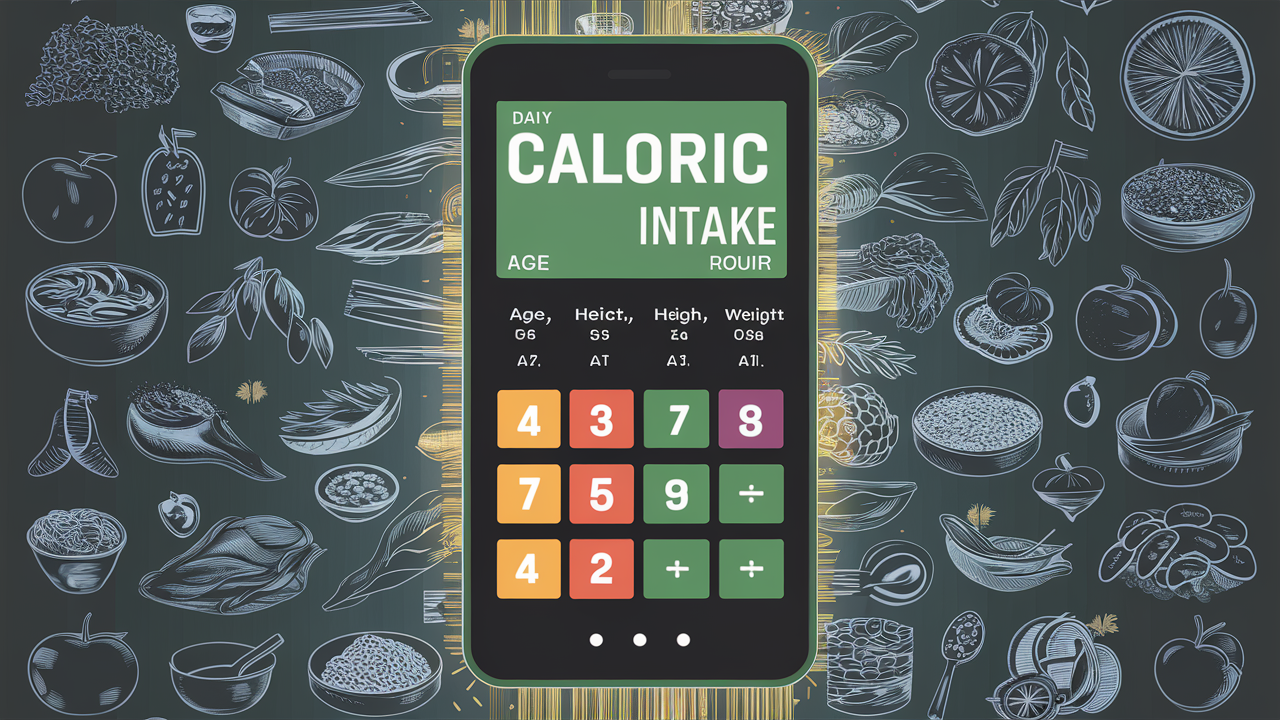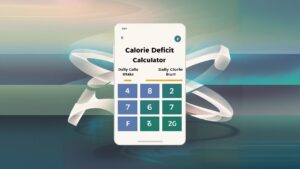In today’s health-conscious world, understanding the role of calories in our diet is crucial for maintaining a healthy lifestyle. Whether you’re aiming to shed a few pounds, build muscle, or simply maintain your current weight, knowing how many calories you need is fundamental. But how do you determine the right amount for your body? Enter the calorie calculator – a valuable tool that takes the guesswork out of calorie management.
Introduction to Calorie Calculation
Before delving into the specifics of calorie calculators, let’s first understand what calories are and why they matter. Simply put, calories are units of energy found in food and beverages. Our bodies require a certain number of calories each day to perform basic functions such as breathing, circulation, and cell repair, as well as to fuel physical activity.
Basics of Calorie Consumption
Several factors influence an individual’s calorie needs, including age, gender, weight, height, and activity level. Basal Metabolic Rate (BMR) represents the number of calories your body needs to maintain basic physiological functions while at rest. Additionally, physical activity and exercise contribute to your total daily energy expenditure.
Calorie Calculator: How it Works
A calorie calculator is a tool designed to estimate your daily calorie needs based on various factors such as age, gender, weight, height, and activity level. These calculators utilize mathematical formulas to provide an approximation of how many calories you should consume each day to maintain your current weight or achieve specific goals like weight loss or muscle gain.
Using a Calorie Calculator
Using a calorie calculator is straightforward. Begin by inputting your personal information, including age, gender, weight, height, and activity level. Most calculators will then generate an estimate of your total daily energy expenditure (TDEE) or basal metabolic rate (BMR), depending on the level of detail provided.
Determining Your Calorie Needs
Once you have your TDEE or BMR estimate, you can determine your calorie needs for various goals. If your goal is weight maintenance, aim to consume roughly the same number of calories as your TDEE. For weight loss, create a calorie deficit by consuming fewer calories than your TDEE, and for weight gain, consume more calories than your TDEE.
Benefits of Using a Calorie Calculator
The benefits of using a calorie calculator are numerous. By accurately estimating your calorie needs, you can effectively monitor and manage your weight, tailor your diet to your fitness goals, and make informed decisions about your nutritional intake.
Potential Pitfalls and Considerations
While calorie calculators can be valuable tools, it’s essential to recognize their limitations. Factors such as individual metabolism, genetics, and lifestyle choices can impact calorie needs, and calculators may not always provide precise results. Additionally, it’s advisable to consult with a healthcare professional before making significant changes to your diet or exercise routine.
Calorie Calculator Apps and Tools
In recent years, an array of calorie calculator apps and online tools have emerged, offering users convenient ways to track their calorie intake and monitor their nutritional goals. When selecting a calorie calculator app or tool, look for features such as user-friendly interfaces, accurate database of foods, and customizable settings to suit your specific needs.
Tracking Calorie Intake
Tracking your calorie intake is key to successful weight management. Many calorie calculator apps offer built-in food databases, allowing you to log meals and snacks with ease. By consistently tracking your food consumption, you can gain insight into your eating habits, identify areas for improvement, and stay accountable to your nutritional goals.
Understanding Macronutrients
In addition to monitoring calorie intake, it’s essential to pay attention to the types of foods you consume and their macronutrient composition. Carbohydrates, proteins, and fats are the three primary macronutrients that provide energy and support various physiological functions in the body. Balancing your macronutrient intake alongside your calorie intake is essential for overall health and wellbeing.
Factors Influencing Calorie Needs
Several factors influence an individual’s calorie needs, including age, gender, weight, height, activity level, and metabolic rate. Lifestyle choices such as diet, exercise habits, and stress levels also play a role in determining calorie requirements. By considering these factors, you can more accurately assess your calorie needs and make informed decisions about your dietary intake.
Adjusting Caloric Intake for Weight Goals
Whether your goal is to lose weight, gain muscle, or maintain your current physique, adjusting your caloric intake accordingly is essential. For weight loss, create a calorie deficit by consuming fewer calories than your TDEE, and for weight gain, consume more calories than your TDEE while prioritizing nutrient-dense foods and regular exercise.
Calorie Calculation for Weight Loss
When aiming for weight loss, it’s essential to set realistic goals and approach the process safely and sustainably. Start by determining your desired rate of weight loss – a safe and sustainable rate is typically 0.5 to 1 pound per week. To achieve this, create a calorie deficit of 500 to 1000 calories per day, either through diet, exercise, or a combination of both.
Calorie Calculation for Weight Gain
For those looking to gain weight, particularly muscle mass, a calorie surplus is necessary. Aim to consume an excess of 250 to 500 calories per day above your TDEE, focusing on nutrient-rich foods that support muscle growth and recovery. Combine this with a structured strength training program to maximize muscle gain while minimizing fat accumulation.
Conclusion
In conclusion, understanding how many calories you need is essential for maintaining a healthy weight and achieving your fitness goals. Calorie calculators provide a valuable tool for estimating your daily calorie needs based on various factors, helping you make informed decisions about your diet and lifestyle. By utilizing a calorie calculator, tracking your food intake, and adjusting your calorie intake accordingly, you can effectively manage your weight, improve your overall health, and optimize your fitness journey.
FAQs
- Why is it important to calculate calorie needs?
- Calculating calorie needs helps individuals understand how much energy their bodies require for basic functions and activities, aiding in weight management and overall health.
- Can calorie calculators accurately determine individual calorie needs?
- While calorie calculators provide estimates based on general formulas, individual factors such as metabolism and lifestyle may influence calorie requirements, so it’s essential to use them as a guide rather than a definitive measure.
- What if I’m not seeing results despite following my calculated calorie intake?
- If you’re not seeing the desired results, reassess your calorie intake, ensure accurate tracking, and consider consulting with a healthcare professional or registered dietitian for personalized advice.
- Are there any risks associated with calorie restriction or surplus?
- Extreme calorie restriction or surplus can have adverse effects on health, such as nutrient deficiencies, metabolic slowdown, or excessive fat gain. It’s crucial to approach calorie management with balance and moderation.
- How often should I recalculate my calorie needs?
- It’s recommended to reassess your calorie needs periodically, especially if your weight, activity level, or goals change significantly. Recalculating every few months can help ensure your calorie intake aligns with your current needs and objectives.



